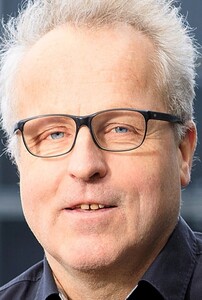1. New immunotherapeutic drugs such as CAR-T cells can benefit patients with certain blood cancers such as leukemia, lymphoma and multiple myeloma. What are the main reasons that the use of CAR-T cell therapy for solid tumors has not attained comparable success to date?
Adoptive cell therapy (ACT) has evolved rapidly over the past decade. The first FDA approval for a chimeric antigen receptor (CAR) engineered cell therapy for blood cancer was granted in 2017. It is impressive that some of the first patients to be treated are still in complete remission a decade later. Many years of R&D effort have focused on ACTs for solid tumors, mostly using autologous immune cells, either engineered – as in the case of CAR-T cells – or unmodified, including tumor-infiltrating lymphocytes (TILs). However, as of now, there are no approved CAR or TIL-based products on the market. There are several mechanisms by which solid tumors can evade the immune surveillance. Current CAR-T cell therapy approaches in solid tumors have many shortcomings. These include limited ability to home in and infiltrate uninflamed (“cold”) tumors, as well as terminally dysfunctional T cells in the immunosuppressive tumor immune microenvironment and subsequent therapy failure. Another inherent weakness of current CAR-T cell therapies is that the therapeutically targeted surface antigens on cancer cells are not completely restricted to the tumor. They are also found in healthy, non-cancerous tissues, and most problematically are heterogeneously expressed within solid tumors. The former can cause severe on-target off-tumor side effects, while the latter can lead to the intrinsic and/or acquired therapeutic resistance observed in the clinic.
2. Why do you believe that CARs have the power to efficiently eliminate cancerous cells in solid tumors such as lung cancer?
Our first area of research is the highly immunogenic lung cancer, NSCLC (non-small cell lung cancer), which is an area of high medical need. On current evidence, a more robust design for CAR-T cells targeting solid tumors is needed to ensure durable anti-tumor efficacy for cancer patients. Specifically, we could either engineer a robust expansion capacity of infused CAR-Ts or alternatively promote a bystander effect mechanism, which triggers an anti-tumor response by the endogenous immune system as a secondary effect of therapy.
Blocking of Cbl-b – a well-defined immune checkpoint in CD8 T cells – may indeed be a promising therapeutic option to significantly boost the tumor-killing function of CAR-T cells in solid tumors. The results that we have obtained in preclinical models validate this hypothesis. Even in the immunosuppressive tumor environment, such Cbl-b-modified CAR-T cells could be an effective “living drug” for tumor cell destruction. As a result, the likelihood of generating long-lasting, tumor-specific and polyclonal immune-mediated tumor defense could be significantly higher.
3. Will invIOs’s novel CAR-T cell approach, INV451, lead to pioneering treatments for solid tumors such as NSCLC in the future?
Lung cancer has been the number one cause of cancer death since the 1950s. NSCLC, a subtype of lung cancer, accounts for 85% of cancer-related deaths, with an annual incidence of more than 40 per 100,000 people (US) and a five-year survival rate of 26.4%. The major challenge in the development of a novel immunotherapy is to offer the prospect of remission to those patients with, for example, late-stage metastatic NSCLC who have historically been incurable (i.e., have not responded to immune checkpoint blockade). Two major challenges are the antigenic heterogeneity of NSCLC tumors and the multiplicity of immune escape mechanisms that the tumor has.
Initial results from the EPiC cell therapy platform developed by our partner invIOs and clinical trials with a novel ACT, APN401, suggest that Cbl-b inactivation contributes to immune cell activation, cytokine release, cancer cell killing and memory cell formation, offering great hope for the future treatment of aggressive solid tumors. The aim of our collaborative project is to optimally extend the efficacy of CAR-T therapy, by boosting the patient’s own anti-tumor immunity and to avoid previously observed therapy resistance in the long term. Thus, key insights into the mechanism of Cbl-b as a suppressor of efficient T cell cytotoxicity form the basis of our central working hypothesis for a new “supercharged” CAR-T cell therapy.
Whether our tailor-made concept of this novel CAR-T cell therapy can improve the therapeutic success rate in patients with late-stage lung cancer will have to be confirmed in further studies. This is exactly the approach we intend to take in our new collaborative project between the Medical University of Innsbruck and invIOs. The study is called “EXCEL-T” (Extension of CD8 CAR-T cell therapy success by Cbl-b pathway blockade) and has received funding from the Austrian Research Promotion Agency (FFG).
Following on robust preclinical proof of concept, we plan to conduct clinical trials to investigate whether our Cbl-b modified CAR-T cell design concept can improve the success rate of patients with advanced cancers. If successful, this would represent a breakthrough in CAR-T therapy for patients with solid tumors and would have the potential to be extended to other difficult-to-treat cancers.
::::::::::::::::::::::::::::::::
Further reading/ LINKS:
- invIOs novel CAR-T cell project
- To learn more about the EPiC platform and invIOs’s science, please visit our website
- Follow the Science of the Medical University of Innsbruck
- Press release by the Medical University of Innsbruck, 3 July 2023: “Neuartige CAR-T-Zelltherapie als vielversprechende Option bei aggressiven Lungentumoren”



